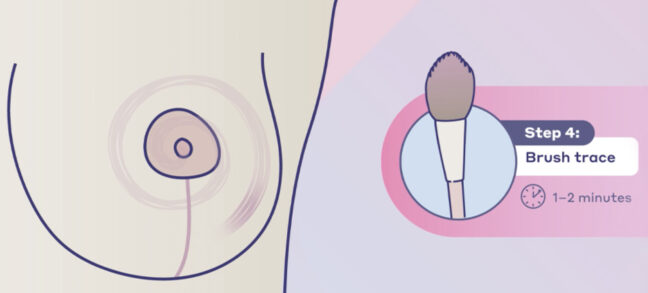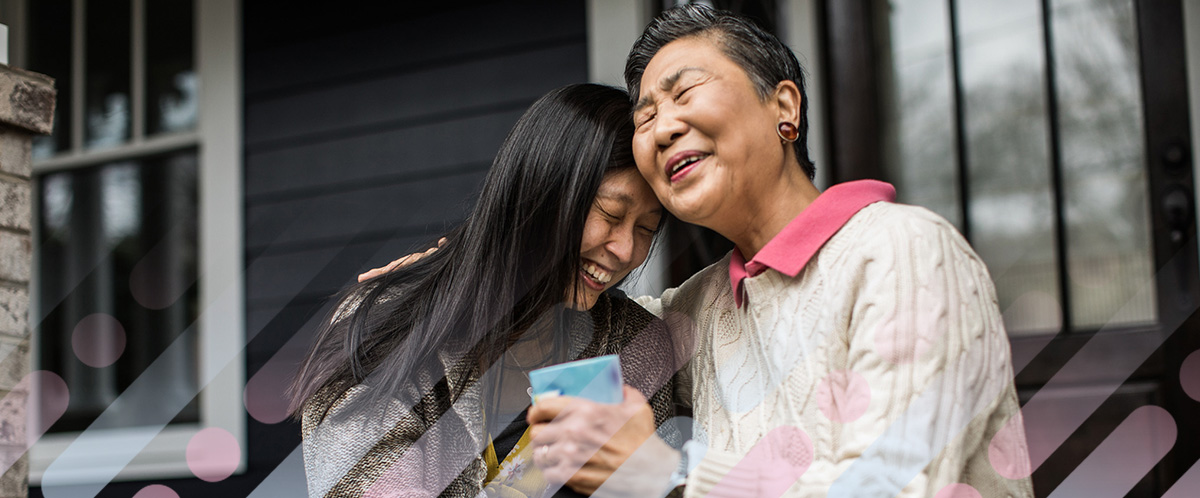The role of caregiver is one of the most important you’ll ever play. It can feel incredibly meaningful and rewarding to show love and be needed in this way. And for many caregivers, it’s a rare opportunity to give back to a loved one who has done so much for them. But it can also be exhausting, frustrating and, at times, entirely overwhelming. Here are a few things you can do to make it easier on yourself and the one you’re caring for.
take care of you, too
What you’re doing is hard. And the physical and emotional nature of it all can take a real toll on your well-being. But when you’re caring for a loved one who’s dealing with the effects of chemo or radiation, it’s easy to feel like your own needs are much less significant. However, they’re more important than ever. Let’s face it: You can’t be a good caregiver if you’re not taken care of, too.
You officially have permission to prioritize yourself and your self-care. We’re not talking daily pedicures and facials, although those are great, too. We’re talking basics. Are you eating right? Drinking enough water? Getting adequate sleep? Start there and work up to adding in the extras.
find support from the start
In addition to caring for a loved one, you may also be trying to come to terms with their illness. This can be a lot to handle on your own. And the more you let it build up, the harder it’s going to affect you when it all bubbles to the surface—and it will. Consider talking through your feelings with a professional or someone close to you.
It can also help to find other caregivers to confide in, empathize with and even share tips with. Caregiving can also be a lonely undertaking. Sharing with others going through it can help you feel less alone. Meeting face-to-face can be tricky, especially these days. Instead, try an online network like the Cancer Survivors Network or the Family Caregiver Alliance.
take a break
Repeat after us: No one, we repeat, no one can handle being a caregiver all day, every day. Steal time for yourself whenever you can. If possible, leave the house and go for a walk, shop or grab a bite to eat. If you can’t get away, find a quiet spot in the house where you can be alone to read, listen to music, meditate—whatever helps you mentally decompress. Even if it’s just for a few minutes.
And don’t forget to maintain your life outside of caregiving. It can be hard, but making time for your friends and favorite activities is important for your mental health. Consider starting a new (fun!) project or set a goal that’s just about you. You deserve it, and more importantly, you need it.
lean on others
You can’t do it all by yourself. Nor should you. Ask for help. Identify who in your network of friends and family can pick up the slack when you have other obligations or just need a break. You’ll likely be surprised by the number of people eager to help. Also, be realistic with yourself and how much you can handle. Talk with your loved one’s cancer team about areas where you may need help.
check in with yourself
When you’re focused on everything from running errands and coordinating care, to reading the fine print on insurance forms, it’s easy to keep pushing your well-being to the bottom of the to-do list. The busy work may distract you from your own emotions for a while, but sooner or later they will catch up with you. So instead, take a few minutes every day to ask yourself if you’re alright. This coping checklist can help.
What you’re doing isn’t easy. And it’s normal to have moments where you want to give up. But remember, this emotionally complicated role is also one of the most beautiful things you can do for someone. So, when those feelings arise, walk to that quiet spot, take a few deep breaths and remind yourself that you are strong, you are capable and you got this.
Resensation Articles

How does mastectomy impact the nerves in the breast?
One sometimes overlooked aspect of mastectomy is its impact on nerves. Read what happens to nerves during mastectomy and explore…
Read More
What happens during implant breast reconstruction with Resensation®?
By repairing sensory nerves, Resensation® enables you to potentially regain sensation to your chest. Read how this procedure works during…
Read More
how resensation® helped Leanna feel secure in her family’s future
With Resensation®, Leanna can be there to watch her kids grow up—without losing the feeling of being whole.
Read More
post-surgery sensory retraining: instructions and video guide
Sensory retraining is a series of exercises designed to help you reconnect with your body after breast reconstruction with Resensation®.
Read More